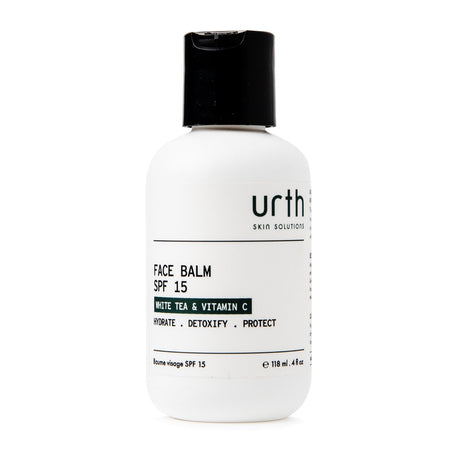Moisturiser
- Featured
- Best selling
- Alphabetically, A-Z
- Alphabetically, Z-A
- Price, low to high
- Price, high to low
- Date, old to new
- Date, new to old
FiltersFilter & Sort
Moisturiser - New Zealand
An essential part of everyone's skincare routine, moisturisers are crucial for maintaining healthy skin. They hydrate and revitalise the skin, creating a protective barrier against external aggressors and preventing dryness and flakiness.
How often should I apply moisturiser?
It's recommended to apply moisturiser twice a day: in the morning after cleansing your face and before bed at night. Adjust your usage based on your skin type and environment.
What ingredients should I look for in a moisturiser?
Look for ingredients such as hyaluronic acid for hydration, glycerin for moisture retention, antioxidants like vitamin C or E for protection, and SPF for sun protection. We particularly recommend the SPF Moisturiser from Standard Procedure, which is Australian-made and ensures quality.
Can I use the same moisturiser for my face and body?
While some moisturisers can be used on both face and body, it's generally better to use a separate moisturiser specifically formulated for facial skin.
Can moisturiser help with oily skin?
Moisturisers are beneficial for oily skin too. Choose lightweight, non-comedogenic formulas that won't clog pores and regulate oil production. This helps prevent the skin from overproducing oil. The men-u Ultra Concentrate Matt Moisturiser is lightweight and oil-free, with sebum absorbers to combat greasy areas, especially around the T-Zone.
Is there a moisturiser that helps with anti-aging?
Yes, moisturisers containing ingredients like retinol, peptides, or hyaluronic acid can help diminish the appearance of fine lines and wrinkles over time.
Should I use a different moisturiser in winter and summer?
Adjust your moisturiser based on seasonal changes. In colder months, opt for a richer moisturiser to combat dryness. In summer, choose a lighter formula or a moisturiser with SPF for sun protection.
How long should I wait after applying moisturiser before applying sunscreen?
Allow your moisturiser to fully absorb into your skin, usually about 5-10 minutes, before applying sunscreen to ensure both products are effective.
Should I use different moisturisers for day and night?
Depending on your skincare needs, use a heavier, more occlusive moisturiser with repairing ingredients at night. For daytime, a lightweight moisturiser with or without sunscreen is suitable.
Which moisturiser is best for dry skin?
For dry skin, opt for richer formulations that provide intensive hydration and reduce irritation. Patricks AM1 Anti-Aging Moisturizer is designed for normal-to-dry skin and absorbs quickly.
By choosing the right moisturiser for your skin type and needs, you can maintain healthy, hydrated skin and address specific skincare concerns effectively.

